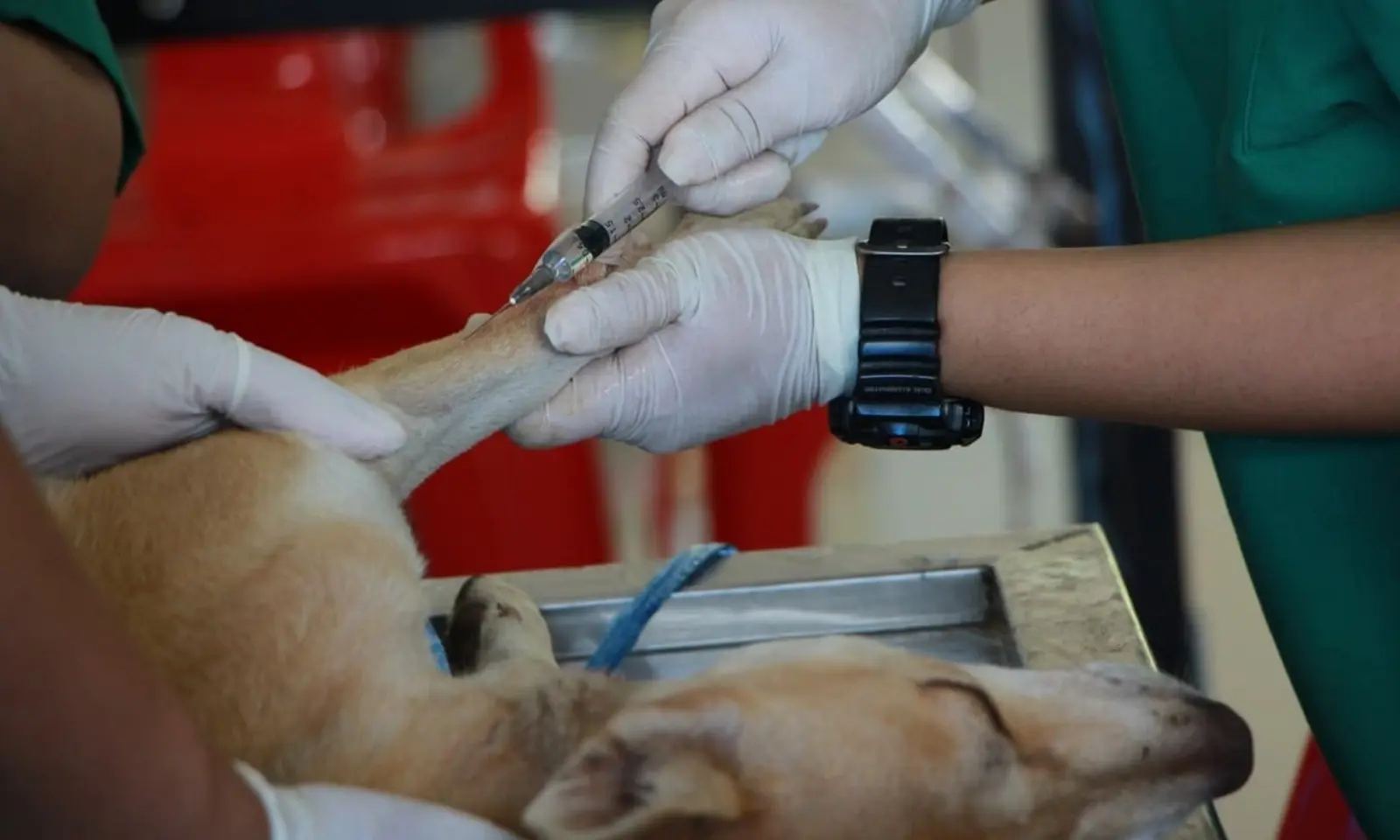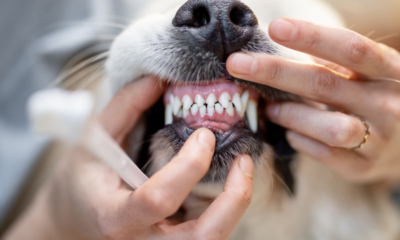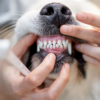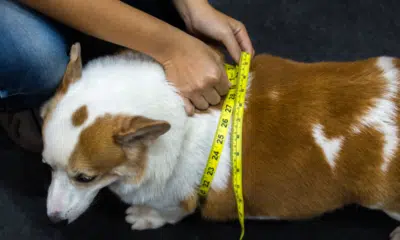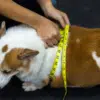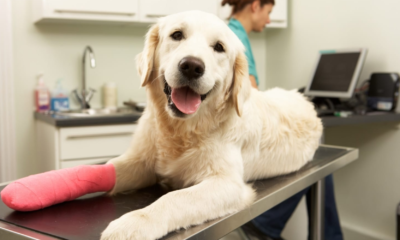Canine Parvovirus, also known as Parvo or CPV is a Highly Contagious Viral disease that affects Dogs. The infection can be Life-threatening for Puppies between Six Weeks to Six Months Old.
Canine Parvovirus attacks in two different Forms:
The Most Common Form of Parvovirus is the Intestinal Form, characterized by Vomiting, Diarrhoea, Weight Loss, and lack of appetite.
The less common form is the cardiac form, where Parvovirus attacks the heart muscles of fetuses and very young puppies, often causing death.
Early Vaccination of Young Puppies can Easily Prevent Parvovirus attacks.
Most Common Symptoms of Parvovirus
The most common symptoms associated with the Intestinal Form of CPV are:
1. Severe diarrhea with blood
2. Extreme Fatigue
3. Loss of Appetite
4. Fever
5. Frequent Vomiting
6. Sudden and Extreme weight loss
The intestinal infection of CPV affects the body’s ability to absorb the nutrients. The affected Dog quickly becomes dehydrated and weak (severe weight loss) because of the lack of protein and fluids in the body.
If left untreated, it can lead to Life-threatening Dehydration.
How Is Parvovirus Transmitted?
Parvovirus is Extremely Contagious. It is easily transmitted by any person, object, or animal which comes in contact with the infected dog’s feces.
A heavy concentration of Parvovirus is present in the infected dog’s stool. When a Healthy dog sniffs that stool, the dog can contract the disease.
The virus can also come along with your shoes if you have come in contact with the feces of an infected dog.
Parvovirus is highly resistant and can easily survive up to a year without a host, in-ground soil. It is resistant to weather changes and normal cleaning products.
In case you need to clean a Parvovirus infected area, use common household bleach.
How Is Parvovirus Diagnosed?
Vets test Parvovirus based on Clinical signs and Lab tests. The most common test is The Enzyme-Linked immunosorbent Assay (ELISA) test.
However, the ELISA test is not 100% Accurate. Your Vet may administer additional tests to rule the diagnosis.
Which Dogs Are Prone to Parvovirus?
The Canine Parvovirus affects mostly the members of the Wolf Family i.e. Dogs, Wolves, Foxes, Coyotes, etc.
Puppies and Young Dogs which are not Vaccinated for Parvovirus are Most susceptible.
Some breeds like Labrador Retriever, Doberman, German shepherds, Rottweilers, and American Staffordshire terriers are at High Risk.
Can Canine Parvovirus infect Humans?
No. Canine Parvovirus (CPV) cannot infect Human Beings.
Human Parvovirus is a different strain (B19) of Parvovirus which can only infect humans and it doesn’t infect canines.
How Can Parvovirus Be Prevented?
The only method to Prevent Canine Parvovirus infection is Vaccination. Parvovirus Should be considered the Most important Vaccination for All Puppies and Adult Dogs.
Ask Your Vet for a Vaccine called a “5-in-1,” protects the puppy from Five Life-threatening diseases – distemper, hepatitis, leptospirosis, parvovirus, and parainfluenza.
If You are buying a puppy or adopting a dog from a shelter, the first thing you must do is to get your Doggo Vaccinated with 5-in-1 Vaccine.
Because Canine parvovirus can easily survive in an environment for a year, you must take extra care if there has been an infected dog in your house or yard. Discard all the utensils and toys of the infected dogs. Bleach your House Properly. We will suggest Not to Bring any Puppy or Dog for 2-3 Years.
How Can Parvovirus Be Treated?
Unfortunately, there are no drugs available to treat Canine Parvovirus. Infected Dog needs immediate and Intensive Veterinary Treatment in the Hospital.
The infected dog is treated to control the symptoms. They are given Antibiotics, Intravenous Fluids, medicines to Stop Vomiting, and Diarrhea. These things are done to Make Dog’s Immune system Powerful enough to fight the Virus.
The Treatment can take a Week to 10 Days. Your Dog Needs to be admitted to the Clinic/Hospital. The treatment can be expensive.
Is There any Home Treatment Available?
There is No Home Treatment Available. DO NOT try to treat your Dog at Home. Parvovirus Can be Fatal.
Even Hospital treatments are not 100% Successful. The disease is Fatal. Keep Your Doggo Vaccinated.
When Is it Time to See the Vet?
Severe Vomiting, Fatigue, and Bloody Diarrhoea are the most common symptoms. If your dog is experiencing any of these, don’t wait. Rush him to your local vet immediately.
Are there any other Diseases with Similar Symptoms?
Sometimes a Puppy can show symptoms like Bloody Diarrhoea and Vomiting because of Parasites, some Viruses other than Parvovirus, colitis, or because of digestive tract injury (puppies tend to put everything in their mouth).
We suggest that you consult your local vet immediately for a full diagnosis.
If You have any other queries regarding Parvovirus or any questions regarding your doggo, feel free to send us a message or leave a comment in the comment section below. You can also connect with us on Social media.
